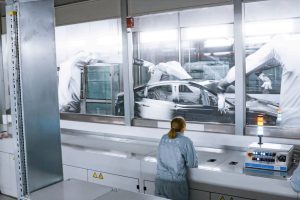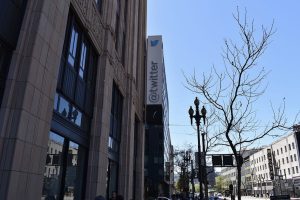Tesla is receiving support from Indian Union Road Transport Minister Nitin Gadkari, who stated that the automaker should have a reduced import duty rate to test demand for its vehicles.
Following news that the company started lining up supplier deals that will give the company the ability to manufacture and sell its cars in India for the first time in the automaker’s eighteen-year history, Tesla is moving closer to having the authorization to import cars into the country. Tesla is reportedly already in talks with several companies that would supply various car parts In India domestically. Tesla is looking to lock up electrical and mechanical components and various car parts, such as windshields, differential brakes, gears, power seats, and instrument panels.
Indian media outlet Economic Times listed Sona Comstar Ltd., Sandhar Technologies Ltd., and Bharat Forge Ltd. as suppliers already in talks with Tesla to sell automotive parts.
Now, Tesla is receiving support from Nitin Gadkari. Gadkari is pushing for reduced import duties so that Tesla can test the demand for its vehicles, an idea the company proposed within the last few months.
“If they have to manufacture here, they need the numbers, and no one can test the market when you impose such high import duty on the vehicles,” Gadkari said to India’s Economic Times.
The company has yet to make an official statement regarding its potential as a domestic automaker in India, but CEO Elon Musk has suggested the possibility for several years. Most recently, Musk hinted that Tesla would be willing to establish a permanent base in India if it could test demand through imports. Indian government officials were not keen on the idea as they favored local manufacturers for economic reasons. However, talks are beginning to move forward, and Tesla looks to be just months away from testing its sales power if all goes according to plan.
Initially, Tesla lobbied to have Indian officials lower import taxes, which apply to every vehicle not produced in the country. Cars below $40,000 are subject to a 40% tax, while any vehicle more expensive than that has a 100% tax applied to it. This makes a significant number of vehicles widely unaffordable for citizens.
Musk, who was unwilling to commit to building a Gigafactory in India until sales figures proved that demand was sustainable, said the only way Tesla would build a manufacturing site in the country was to test sales through imports. Politicians rebutted with the argument that it could not provide “company-specific” incentives to avoid import taxes, although Tesla lobbied for all EV makers to qualify for the reductions. Indian government officials then stated that the only way Tesla could have reduced imports was if it committed to building a Gigafactory in the region, which ultimately put the situation at a brief standstill.
Government officials then backtracked just a week later, considering the advantages that could come from allowing imports with reduced duties for EVs only. Other automakers, like Volkswagen, supported the idea, but no official statement has been issued by any Indian official or by Tesla regarding the progress of the negotiations.
With suppliers evidently in talks with Tesla, along with several vehicles being spotted testing in the country and now support from Transport Minister Gadkari, the automaker may be just months away from importing vehicles for sales.





